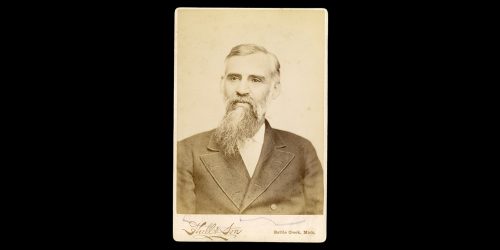
Credit: Adventist Digital Library
Soon after, he and his wife moved to Florida to grow oranges. Six days before his departure for the South in mid-December, Ellen White sent him a letter in which she called him an enemy of the Testimonies and an unconverted man. She closed with an appeal to his heat to change his ways.
That was the first of many letters to Butler. But he was not up to confessions. Looking back at his early Florida period from the perspective of 1905, he wrote: “Some people find it very hard to make a confession. . . . She used to write me, over and over, about the Minneapolis meeting and things of that kind, and I invariably wrote back to her that it was utterly useless for me to go to making confessions I did not believe we're called for. I stood my ground on that.” He would, he claimed, never make the mistake of claiming peace when it did not exist.
To outward appearances, Butler’s frustration had reached its peak in early 1893 when he asked that the denomination not renew his ministerial credentials. But in actuality Butler was probably not requesting to resign as a minister as much as he was raising a question that he needed to have answered — “Am I still needed?”
About the same time, he preached for the first time in four years. Meanwhile, the church renewed his credentials. Overjoyed with his acceptance, Butler declared that he was almost ready to exclaim that “the dear brethren have entered into a conspiracy to kill the old sinner with kindness.”
But, being a complex person, as all of us are, he still couldn’t believe “that God led Waggoner to deluge the denomination with the Galatians controversy.” On the other hand, he was now at least willing to admit that God had brought good out of it — especially in terms of the increased prominence of justification by faith and the righteousness of Christ.
Lord, we want to thank You for Your long-suffering with rebellious humans. We each have a little of George Butler in us, and we need help. More than that, we want help. Thank You for staying in our lives in spite of who we are.
George R. Knight is a retired professor of Church History at the Adventist Theological Seminary at Andrews University. This article is from his book, Lest We Forget, a daily devotional, published by the Review and Herald Publishing Association, page 296; reprinted by permission.